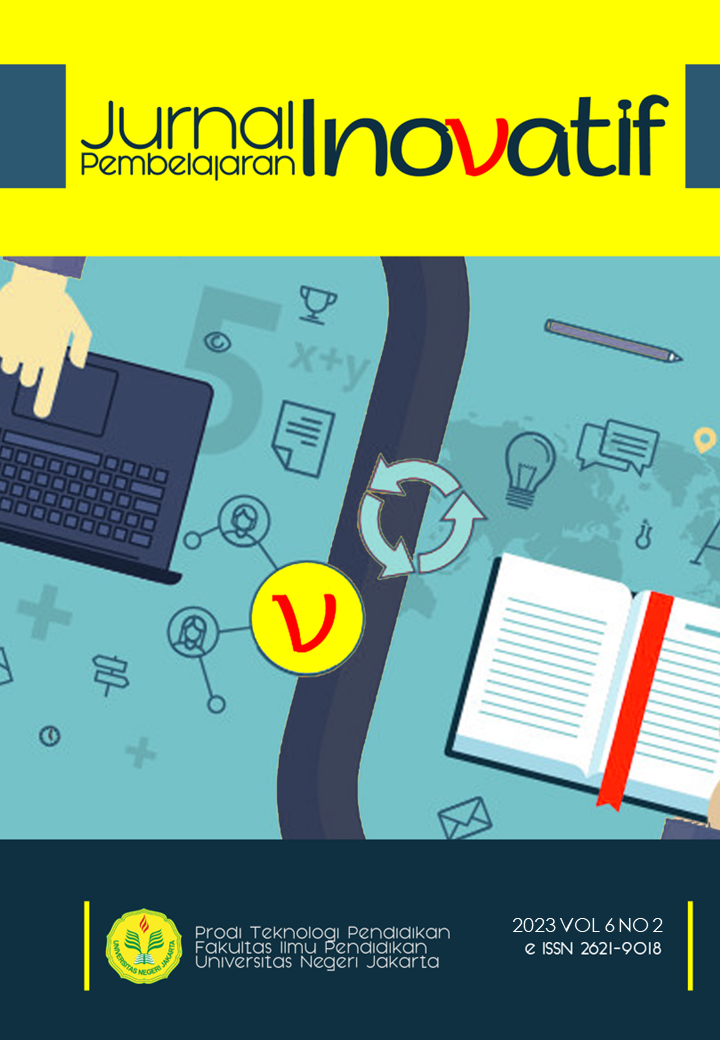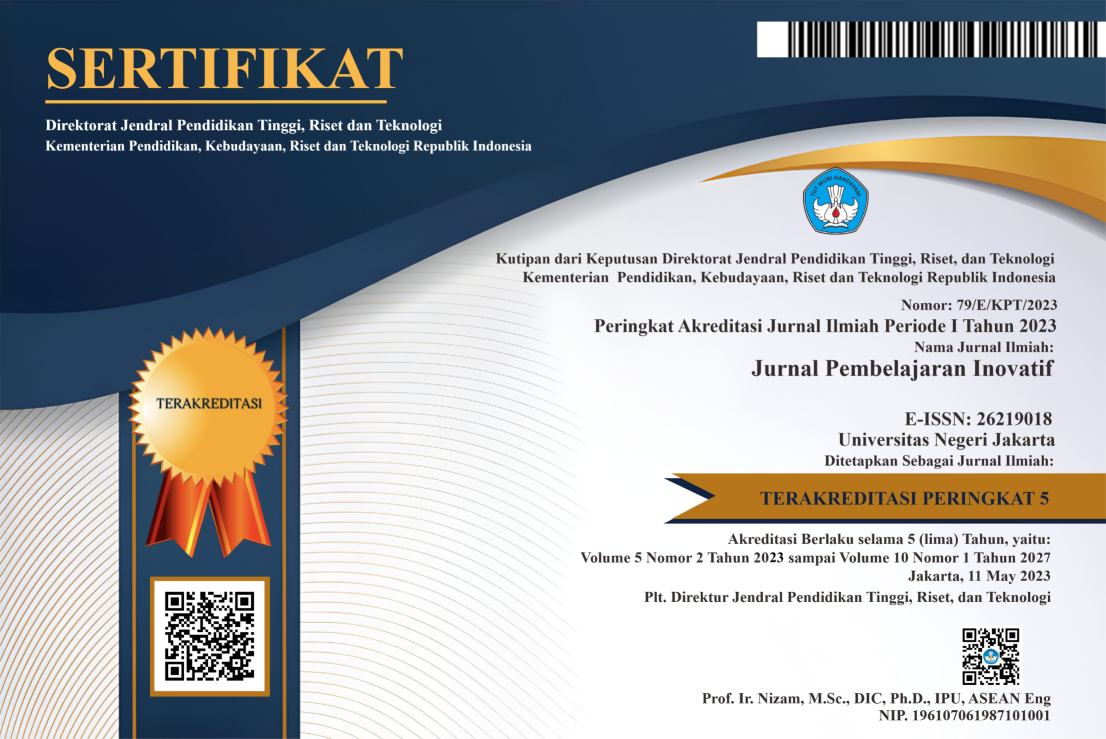Pengembangan Modul Elektronik pada Mata Pelajaran Teknik Pemesinan Bubut
DOI:
https://doi.org/10.21009/JPI.062.02Keywords:
learning media, lathe machining techniques, electronic modules, 4DAbstract
Buku teks masih merupakan salah satu media pembelajaran yang belum tergantikan dalam proses pembelajaran. Buku teks memiliki beberapa kelemahan yaitu tidak mampu memvisualkan peristiwa secara dinamis, kurang interaktif, dan tidak mendukung belajar multi sumber. Pendidik perlu menggunakan dan mengembangkan media pembelajaran yang mampu melengkapi kekurangan yang dimiliki buku teks yaitu dengan pengembangan modul elektronik. Penelitian ini bertujuan untuk mengembangkan dan mengetahui kelayakan modul elektronik untuk mata pelajaran teknik pemesinan bubut menurut ahli materi, ahli media, dan uji coba siswa. Penelitian ini menggunakan metode research and development (R&D) dengan model pengembangan 4D. Hasil uji kelayakan modul elektronik mendapatkan presentase 86,15% dari validator ahli materi, 86,15% dari validator ahli media, 87,85% dari hasil uji coba siswa kelompok kecil, dan 86,8% dari hasil uji coba siswa kelompok besar. Dari hasil pengujian tersebut, maka dapat disimpulkan bahwa modul elektronik untuk mata pelajaran teknik pemesinan bubut “Sangat Layak” digunakan untuk kegiatan pembelajaran.
Textbooks are still one of the learning media that have not been replaced in the learning process. Textbooks have several disadvantages, namely not being able to visualize events dynamically, lacking interactive, and not supporting multi-source learning. Educators need to use and develop learning media that are able to complement the shortcomings of textbooks, namely by developing electronic modules. This study aims to develop and determine the feasibility of electronic modules for lathe machining engineering subjects according to material experts, media experts, and student trials. This research uses research and development (R&D) methods with a 4D development model. The results of the electronic module feasibility test received a percentage of 86.15% from material expert validators, 86.15% from media expert validators, 87.85% from small group student trial results, and 86.8% from large group student trial results. From the results of these tests, it can be concluded that electronic modules for lathe machining engineering subjects are "Very Feasible" used for learning activities.
Downloads
Published
How to Cite
Issue
Section
License
JPI provides immediate open access to its content on the principle that making research freely available to the public supports a greater global exchange of knowledge.
All articles published Open Access will be immediately and permanently free for everyone to read and download. We are continuously working with our author communities to select the best choice of license options, currently being defined for this journal is licensed under a Creative Commons Attribution-ShareAlike 4.0 International License (CC BY-SA).




